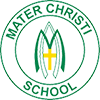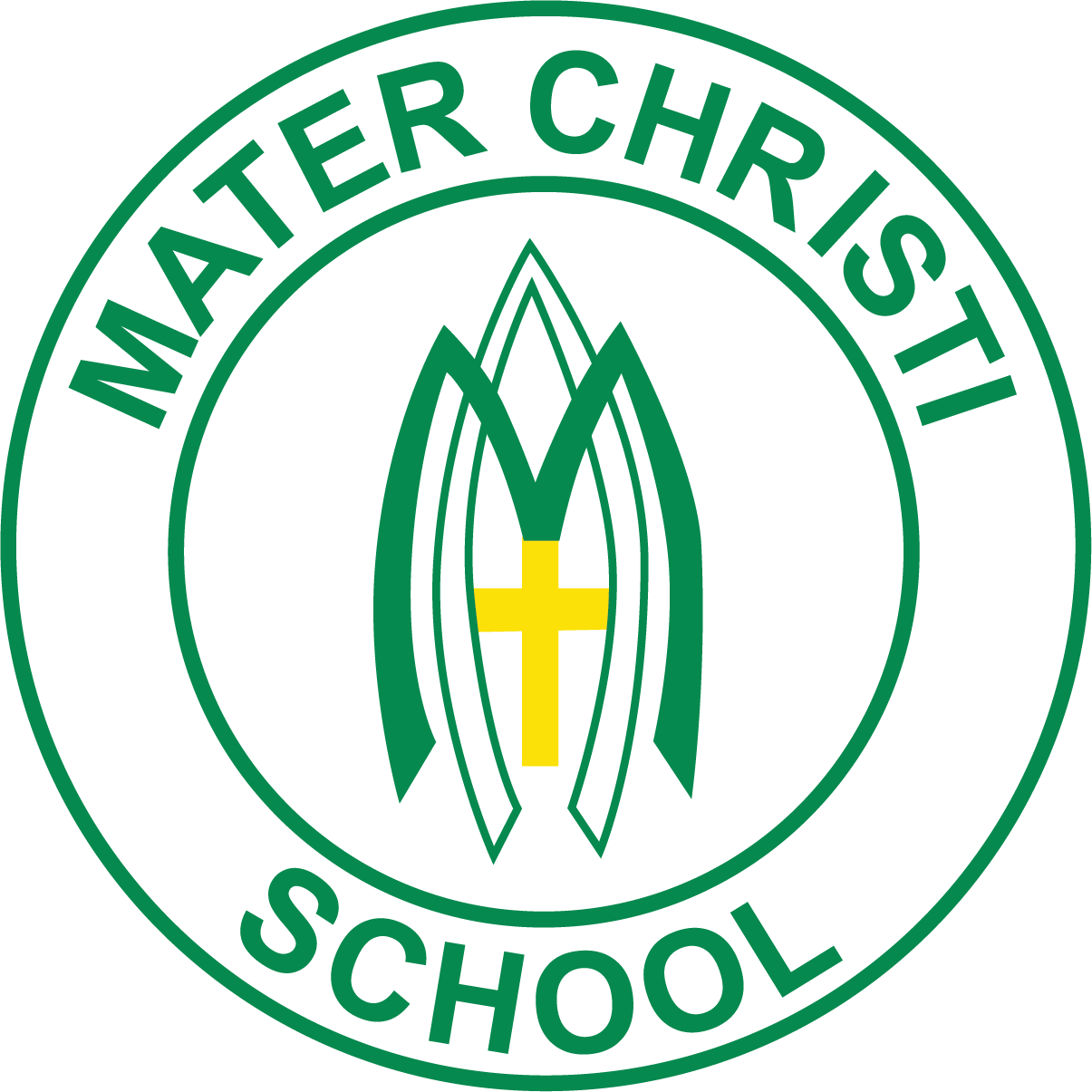Middle School
Mater Christi School provides an excellent middle school learning environment for the crucial transition from elementary to high school. Our educational approach combines love and kindness with a rigorous academic program that helps the students establish excellent study skills and develop confidence in their abilities to be successful scholars.
Mater Christi School uses a wide range of educational approaches to enhance student learning and engagement. Educational technology tools include virtual reality viewers, video creation tools, robots, and a Chromebook for every student. Online digital tools provided by Google and textbook publishers are used daily by faculty to help students develop 21st century learning skills. Project-based learning and alternative seating arrangements facilitate student engagement in their subjects. Small class size and teacher continuity from one year to the next ensure that teachers can personalize education to individual student needs and strengths. Many of our teachers have spent time working as professionals in their respective discipline, which allows them to bring real-world experience into the classroom.
Subjects
ELA / Literature
Grades 5 - 8
Separate courses are devoted to the teaching of English and literature. Students have weekly lessons in writing and grammar. Writing is presented through the Six Trait Writing program. The traits include idea, organization, sentence fluency, voice, word choice, and conventions. These skills are integrated into the study of literature as students read many genres and write about what they have read. Students write poetry, essays, short answers and creative pieces. There is an emphasis on reinforcing and integrating skills throughout the curriculum. Technology and audiovisual resources are used to supplement and enhance learning.
Nicole Mossey
Mathematics
Grades 5 - 8
Our math program is designed to help and encourage each student to strive for his or her own level of excellence. Hands-on learning, “math labs,” Smart Board lessons, group problem-solving, and games are just a few of the ways that traditional instruction is enhanced. Algebra and geometry are central focuses of instruction in each grade. The basic mechanics that are necessary to succeed at higher levels of math are continuously reinforced and evaluated. Extra help is offered to those who may need it during the day and after school in an environment of encouragement.
In eighth grade, students have an opportunity to take the Algebra I Regents course, if they qualify.
Religion
-
Fifth grade religon class is rooted in scripture and faithful to the traditions of the Catholic church. Class centers on the person of Jesus Christ showing the relationship with God the father, God the Son, and God the Holy Spirit. Students learn about Jesus with his sacraments.
-
Sixth grade religion class concentrates on knowing God with divine revelation through the books of the bible. They have an overview of the Old Testament, God's covenant and the fulfillment of that covenant in the person of Jesus.
-
Seventh grade religion class concentrates on how we live our faith as disciples of Jesus. It centers on Jesus's life, his teachings, and the sacraments he instituted. It presents Jesus's call to each person to become His disciple and the ways in which His teachings, His sacraments, and His church nourish people for discipleship. Students learn who is God, who is Jesus, how is Jesus Christ alive in the Church today, and how does the Church live as the Body of Christ.
-
In eighth grade religion class, students learn to live our faith as members of the Church from her beginning at the Pentecost event through her history encompassing her teachings and traditions. It presents the mission of the Church, entrusted to her by Jesus, as the responsibility of all baptized Catholics.
Courtney Blackwell
Deacon Gerry Ladouceur
Science
Students learn science process skills most effectively when they have a central role in the discovery process. All of our science classes are as hands-on as possible, with regular lab experiences that complement the learning goals. Students learn and practice their new understandings in a variety of ways, including digital activities, group and individual projects, and engineering design.
-
In Grade 5, students study earth, physical, and life science. Students have their first introduction to science as a separate discipline. Emphasis is put on how to do and learn science through project-based learning. For instance, when we learn about Earth’s systems, we identify how acid rain will impact each system. We also spend time learning how to experiment.
-
In Grade 6, students study earth, physical, and life science. Students are gaining more independence in their learning, and beginning to delve deeper into each topic. We explore matter and phases, energy, weather, the rock cycle, and plate tectonics. We also learn about how living organisms are classified. Fun projects include building a Rube Goldberg machine (as we learn about energy), and weather tracking for a week.
-
In Grade 7, students study physical science. Topics in both chemistry and physics act as the focus for students as they learn the processing skills, content, and concepts that are necessary to be a good scientist.
-
In Grade 8, students study life science. This course is designed for students to study living things in their world, through cell biology and genetics. Students learn how modern living things have evolved, survive, and reproduce through the study of earth and life history. Students also learn how physical principles function in living systems.
In Grade 8 Regents, students prepare for the Living Environment Regents Exam in June. Students learn scientific inquiry, cell structure/function, basic biochemistry, nutrition, photosynthesis, respiration, mitosis, meiosis, genetics, protein synthesis, evolution, classification, plants, animals, systems of the body, ecology, and human impacts on the environment.
Danielle Eisenberg
Social Studies
Grades 5 - 8
Students in Grades 5-8 use critical thinking and reasoning skills through a variety of student-based activities. Students focus on the changes societies incur over time and place to meet the changing needs and wants of their people.
Through the examination of primary sources, students will be prepared to complete constructed response questions, which lay the foundation for higher level thinking skills and writing document-based essays. Classes are formatted to the New York State Standards and Curriculum, preparing them for high school and beyond.
Students explore ancient civilizations through the Middle Ages in Grade 6 to learn how such diversity has significantly influenced civilization. Grades 5 and 7 examine the inception of the United States from pre-Columbian times to the Civil War. Grade 8 explores the role of the United States from Reconstruction to the present.








